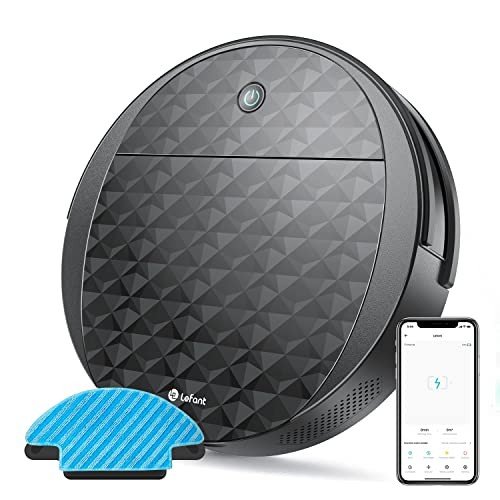The Ultimate Glossary Of Terms About Robotic Vacuum
The Rise of the Robotic Vacuum Cleaner: Revolutionizing Home Cleaning
In the realm of family devices, robotic vacuum have actually emerged as among the most substantial innovations recently. These autonomous devices provide convenience and effectiveness, allowing house owners to maintain cleaner living areas without the drudgery of manual vacuuming. This article checks out the evolution, performance, benefits, and considerations concerning robotic vacuum cleaners, together with supplying insights through information tables and regularly asked questions.
A Brief History of Robotic Vacuum Cleaners
The journey of robotic vacuum started in the late 20th century, with early models stopping working to make substantial strides in homes. However, advancements in technology resulted in the introduction of more refined models in the early 2000s. Business such as iRobot and Neato played a pivotal role in promoting these smart home gadgets.
Advancement Timeline of Robotic Vacuum Cleaners
Year
Turning point
1996
Introduce of the very first robotic vacuum, the ELECTROLUX TRINITY
2002
iRobot presents the Roomba, a widely acknowledged design
2012
Introduction of models with sophisticated mapping abilities
2020
Incorporation of synthetic intelligence for enhanced navigation
2023
Designs with integrated wise home connectivity and app control
How Robotic Vacuum Cleaners Work
Robotic vacuum cleaners utilize a combination of sensing units, mapping technology, and synthetic intelligence to browse and clean numerous surface areas effectively. Here's a simplified introduction of their core performance:
Sensors: Equipped with infrared or ultrasonic sensors, these gadgets can spot challenges, cliffs, and dirt, allowing them to navigate through rooms without crashing into furniture or toppling down stairs.
Navigation: Most contemporary robotic vacuum integrate clever mapping innovations, enabling them to map out the home design and optimize cleaning paths.
Cleaning Mechanism: Using brushes and suction power, robotic vacuums collect dirt, dust, and debris from different floor types, including carpets and hardwood.
Charging and Cleaning Schedules: After completing a cleaning session or when their battery runs low, these robotics immediately return to their charging dock. Users can set cleaning schedules by means of mobile phone apps, helping maintain a tidy home easily.
Advantages of Robotic Vacuum Cleaners
Robotic vacuum cleaners offer numerous benefits over standard vacuuming methods. Here are some of the key advantages:
- Time-Saving: Automated cleaning suggests homeowners can designate their time to other activities.
- Convenience: Scheduling cleaning sessions permits a clean home without manual intervention.
- Thorough Cleaning: Many robotic models include specialized brushes to take on pet hair and supply deep cleaning on carpets and rugs.
- Smart Home Integration: Many units work with smart home systems, providing voice control and remote management.
Popular Features in Robotic Vacuum Cleaners
Feature
Description
Mapping Technology
Develops a digital map of the cleaning area
Mobile App Control
Supplies users the ability to start/stop or schedule cleaning sessions remotely
Self-Cleaning
Some designs have docking stations that can self-empty dust bins
Advanced Sensors
Identifies dirt more efficiently and browses much better
Voice Control
Suitable with virtual assistants like Alexa and Google Assistant
Considerations Before Purchasing a Robotic Vacuum Cleaner
While robotic vacuum cleaners use many benefits, prospective buyers must consider a couple of elements before purchasing. Here are some points to bear in mind:
Key Factors to Evaluate
Floor Type: Certain models perform much better on carpets while others excel on tough floorings. Purchasers should select versatile vacuums if they have actually blended flooring.
Battery Life: Longer battery life permits extended cleaning sessions. Look for designs that can cover large locations without frequent charging.
Dustbin Capacity: A larger dustbin lowers the frequency of emptying, making cleaning less labor-intensive.
Noise Level: Some models run silently, which is perfect for homes with infants or delicate animals.
Maintenance: Users must likewise examine the ease of maintenance, especially for filters and brushes.
Prospective Drawbacks
- Rate: Robotic vacuum cleaners can be substantially more expensive than standard vacuums.
- Efficiency: While they efficiently maintain tidiness, they might not always match the deep cleaning effectiveness of manual vacuums.
- Challenge Navigation: Some models might have problem with specific kinds of furniture or messy locations, potentially leading to missed spots.
FAQs About Robotic Vacuum Cleaners
Q1: How typically should I run my robotic vacuum cleaner?
A1: It generally depends on your household. For homes with pets or high foot traffic, running it day-to-day is beneficial. In less active homes, you might discover every other day is enough.
Q2: Can robotic vacuum cleaners work on carpets?
A2: Most robotic vacuums can clean carpets; however, features such as suction power and brush style can significantly affect their effectiveness on different carpet types.
Q3: Are robotic vacuum helpful for animal hair?
A3: Yes, many models are particularly developed to get pet hair and come with specialized brushes to prevent tangling.
Q4: What takes place when the vacuum runs out of battery?
A4: Most robotic vacuums instantly go back to their charging dock when their battery is low, guaranteeing they are prepared for the next cleaning session.
Q5: Can I control my robotic vacuum with my smart device?
A5: Yes, lots of robotic vacuum cleaners come equipped with mobile apps that allow you to arrange cleanings, screen development, and receive notices.
Robotic vacuum represent a considerable development in home-cleaning technology, combining benefit with performance to basically change how households keep cleanliness. As Full Piece of writing continue to emerge, these gadgets are becoming increasingly capable, offering users not only time-saving services but also enhanced cleaning experiences. As the marketplace continues to grow, potential purchasers are motivated to weigh the features, benefits, and factors to consider carefully to find the best model customized to their distinct needs. Whether it's a hectic family, an animal enthusiast, or someone looking for automation in their cleaning routine, there's likely a robotic vacuum that fits the costs.
